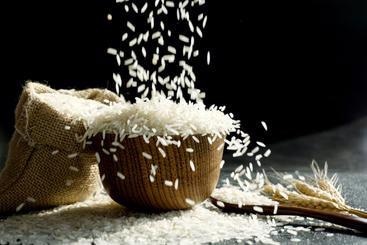Plants are just like humans, with their ways of dealing with stress. Researchers are tracing out plants’ stress-busting methods to save one of the world’s most powerful crops from adverse climatic swings.
 UCR scientists are learning how to help rice crops survive extreme climate swings. Image Credit: YuanruLi/iStock/Getty
UCR scientists are learning how to help rice crops survive extreme climate swings. Image Credit: YuanruLi/iStock/Getty
A UC Riverside-led team has discovered what occurs to rice plant roots when they are subjected to one of two stressful situations: too much or too little water. These findings serve as the foundation for new protective methods.
This one crop is the major source of calories for upwards of 45 percent of humanity, but its harvests are in danger. In the U.S., floods rival droughts in terms of damage to farmers’ crops each year.”
Julia Bailey-Serres, Study Lead and Geneticist, University Of California Riverside
While rice can grow in flooded soils, the plants produce less food and may even die if the water is too extensive for too long. This study simulated five-day or prolonged floods in which plants were fully submerged. It also reproduced drought conditions.
The researchers focused on the roots’ reactions to both types of conditions since roots are the unobserved first responders to flood and drought pressure.
Their findings have been published in the journal Developmental Cell.
One important discovery concerns suberin, a cork-like substance produced by rice roots in response to stress. It protects against both floods and droughts.
Suberin is a lipid molecule that helps any water drawn up by the roots make it to the shoots, and helps oxygen from shoots to reach roots. If we reinforce the plant’s ability to create suberin, rice has better chances for survival in all kinds of weather.”
Julia Bailey-Serres, Study Lead and Geneticist, University Of California Riverside
The research discovered a system of genes that control suberin production and can use this knowledge for gene editing or selective breeding.
Understanding suberin is particularly exciting because it is not susceptible to breakdown by soil microbes, so carbon that the plant puts into suberin molecules in the roots is trapped in the ground.”
Alex Borowsky, Study Co-Author and Computational Biologist, University Of California Riverside
“This means that increasing suberin could help combat climate change by removing and storing carbon from the atmosphere,” Borowsky added.
The scientists also discovered the genes that control some of rice’s other stress responses.
“One of our interesting findings is that when rice plants are submerged in water, the root cell growth cycle goes on pause, then switches back on shortly after the shoots have access to air,” Bailey-Serres said.
The research group intends to test how adjusting these stressful situations can make the plant more adaptable to both wet and dry outcomes in the future.
“Now that we understand these responses, we have a roadmap to make targeted changes to the rice genome that will result in a more stress-tolerant plant,” Bailey-Serres said.
Even though heavy rains and droughts are becoming more common dangers, Bailey-Serres believes that modern gene technology can boost its resilience before it is too late.
“With genome editing, the fact that we can make a tiny but targeted change and protect a plant from disease is amazing. Though our crops are threatened, new technologies give us reasons to hope,” Bailey-Serres said.
Source:
Journal reference:
Reynoso, M. A., et al. (2022) Gene regulatory networks shape developmental plasticity of root cell types underwater extremes in rice. Developmental Cell. doi.org/10.1016/j.devcel.2022.04.013.